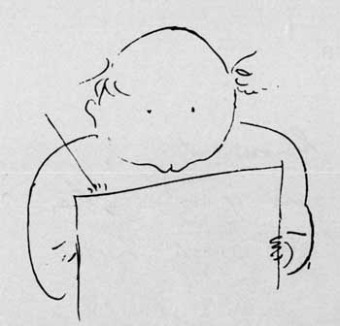 Friend: What is it you’re studying?
Friend: What is it you’re studying?
Me: Cultural geography
Friend: What’s that about?
Me: Well, it’s erm… basically…
It is the ubiquity of this type of conversation that makes me sometimes feel that Landscape Surgery sessions amount to the equivalent of holding an AA meeting in a pub; simultaneously a sympathetic and consoling audience, and dragging you further into the fog.
Indeed, there appears to be a lack of kudos for the cultural geographer. On the one hand, we have the (slightly straw-man-esk) practitioner of a hard natural science or quantitative social science, who are broadly either respectfully bewildered, or sniff and use expressions like ‘it’s a bit fluffy’, ‘yes, but what use is that?’ or, more bluntly, ‘sounds like bollocks’. On the other hand we have someone who works within the humanities/arts/humanity-sympathetic social scientist group, who in my experience often say ‘sounds like bollocks’ if you don’t have much time to explain it, or, interestingly, if you have some time to explain it, often are surprised it sounds like their own discipline. This has actually happened with disciplines as broad as media studies, history, philosophy and architecture. I’m sure you’re thinking what wonderfully diverse friends I have, but this phenomenon speaks to something Mike alludes to; if you can study everything, the worth or utility of any individual thing that you study must be zero. This is an interesting paradox; logically breadth and diversity in study would be, at worst, an asset; at best, a positive virtue.
I realise that, posting this on a cultural geography blog is somewhat preaching to the converted. So rather than what cultural geography’s relationship, through me, to my peers is, what is my own relationship with the discipline? I think, firstly, there is a perhaps symbiotic, perhaps parasitic, aspect. All I ever wanted to do was learn about stuff, happenings: phenomena, facts and philosophy. I chose my A level subjects on the basis of breadth of knowledge I could learn- physics, geography and music; a science, a social science, and a humanity. What I value in cultural geography is that not only do I have the opportunity to learn things, I learn about ways of thinking about things. Thinking on a higher plane. On a very fundamental level, in the process of becoming a cultural geographer, I am also becoming more the person I want to be.
Secondly, then, if the works of cultural geography help me to think in new ways, it is also a literally disciplining set of ideas, in that my mind/body/organ/life-world composite is ethically regimented to the norms of the cultural geographical canon. What are stipulations to have a reciprocal and reflective positioning in an interview if not a call for humility? What are the understandings of multifaceted and contingent narratives of truth if not a source of soul searching? What are understandings of spatial power and politics if not a fundamentally moralising set of discourses? In learning about post-colonialism, poststructuralism, (post)postmodernism, I feel I am either consciously or subconsciously internalising not only the ways of thinking about things, but ways of ethically approaching things as well. Maybe they are one and the same thing, I don’t know. I hasten to emphasise, I see this as a good thing!
Of course, it’s not all gravy. 6 years ‘in’ academia has had an obvious and sometimes distressing impact on my prose, for example. I remember listening to the Reith lectures, recently presented so brilliantly by Grayson Perry. He quoted a bit of writing from an arts magazine that was obviously meant to be pretentious and impenetrable; I found it quite lucid, and now worry that I have lost all sense of what normal language feels like. It’s a real worry, because in my first week at university I remember thinking that anyone who wrote like in that obfuscatory way must be bull-shiting. More generally, there is the ubiquitous but no less disquieting feeling of change being diametrically opposed to authenticity. Now, obviously, as a learnéd post-structural cultural geographer, authenticity is what you make it, basically. Everything started somewhere, what you decide is authentic is just a matter of where you draw the line. I know there is, in fact, no authentically me ‘me’. So, I’m not becoming less authentic, but I am becoming different. I am changing, and it is this that is my third, somewhat ironic, personal connection with cultural geography; it is relevant to the way I live my life. In becoming more sensitive to things like heritage and feelings of place, I am more distant from my own heritage, and the places that I would think of as formative. In developing critical and deconstructive ways of thinking, I often find a feeling of the Fruedian uncanny- that which is familiar and yet also distant. Indeed, it is being able to identify what I read in the literature with what I instinctively engage with to be the most important aspect of cultural geography; it is relevant.
Giles Lindon (M.A. Candidate)
Souvenir Geographies: Nostalgia, Authenticity and Place-making



